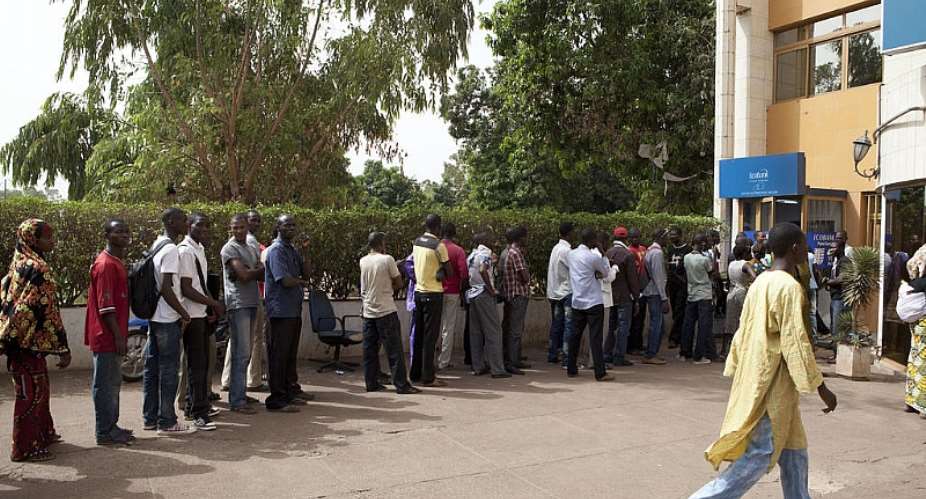Operations at Mali's central bank restarted operations this week following restrictions imposed by the regional monetary authority in light of a coup d'etat ousting President Ibrahim Boubacar Keita. However, the country remains cut off from international transactions and financing.
“They opened the counters at the Central Bank of West African States (BCEAO) and they allowed inter-bank transfers in Mali, cheque remittances, netting/offsetting,” said Hamadoun Bah, secretary general, National Union of Banks, Insurance and Financial Institutions (SYNABEF).
But international operations, notably those within the West African CFA franc zone, remain blocked, as well as ATM machines for those with Visa cards, added Bah.
Mali is one of eight countries making up the West African Monetary and Economic Union using the West African CFA franc common currency, which is managed by the Dakar-based BCEAO and guaranteed by the French treasury in Paris.
In the aftermath of the coup led by a group of Malian soldiers, the Ecowas regional bloc imposed restrictions on the country and the regional central bank stopped operations.
An Ecowas mediation team has been meeting Mali's military junta, who reportedly proposed a three-year transitional authority led by soldiers.
Financially isolated
Fears of Mali running out of cash are unfounded, SYNABEF head Bah told RFI, nevertheless restrictions on international transfers is a "big problem" since it blocks credit. “It creates difficulties for the country,” he added.
“It blocks financing at the level of the BCEAO, it blocks refinancing of the economy at the national level, monetary creation, there's also a question of banknotes,” said Bah.
AZA Finance, a Nairobi-based currency broker, last week described the clampdown by the BCEAO as a "hidden danger".
“Limits on FX transactions will inhibit trade particularly for the dominant agricultural sector in Africa's eighth largest country,” said Michael Nderitu, head of trading for AZA.
“It is therefore crucial that the BCEAO resumes normalcy in the currency markets as soon as events on the ground permit,” Nderitu added, in a briefing seen by RFI.
Bah is concerned the restrictions will force many businesses to consider making transactions outside the formal banking system: “The fact they've financially isolated Mali will encourage transfers on the black market.”
Mali's economy is already considered fragile, described by the World Bank as a “low-income economy that is undiversified and vulnerable to commodity price fluctuations”.





 We’ll no longer tolerate your empty, unwarranted attacks – TUC blasts Prof Adei
We’ll no longer tolerate your empty, unwarranted attacks – TUC blasts Prof Adei
 Bawumia donates GHc200,000 to support Madina fire victims
Bawumia donates GHc200,000 to support Madina fire victims
 IMF to disburse US$360million third tranche to Ghana without creditors MoU
IMF to disburse US$360million third tranche to Ghana without creditors MoU
 Truck owner share insights into train collision incident
Truck owner share insights into train collision incident
 Paramount chief of Bassare Traditional Area passes on
Paramount chief of Bassare Traditional Area passes on
 Two teachers in court over alleged illegal possession of BECE papers
Two teachers in court over alleged illegal possession of BECE papers
 Sunyani: Victim allegedly shot by traditional warriors appeals for justice
Sunyani: Victim allegedly shot by traditional warriors appeals for justice
 2024 elections: We've no trust in judiciary; we'll ensure ballots are well secur...
2024 elections: We've no trust in judiciary; we'll ensure ballots are well secur...
 Performance tracker: Fire MCEs, DCEs who document Mahama's projects; they're not...
Performance tracker: Fire MCEs, DCEs who document Mahama's projects; they're not...
 Train crash: Railway ministry shares footage of incident
Train crash: Railway ministry shares footage of incident
